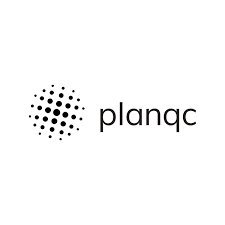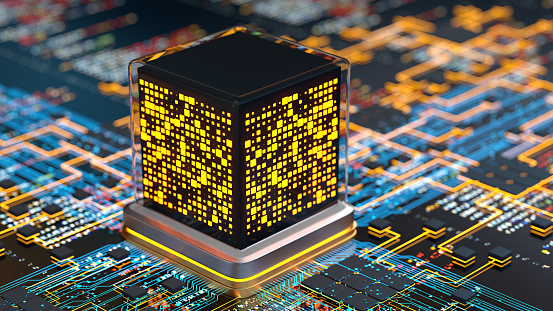what is the future of quantum computing ?
-
by anonymous
- 21
A future built on quantum computing is a promising one, in which we can solve some of humanity’s greatest problems faster, more efficiently, more accurately and at a greater scale. When we get to that future is the real question as we work to enhance and scale our current quantum capabilities.
Is Quantum Computing the Present or Future?
Quantum computing is both the present and the future. Unlike classical computing, which uses bits to represent data and perform operations, quantum computing uses qubits (quantum bits), which can exist in multiple states that are probabilistically determined, known as superposition. This will allow quantum computers to perform certain types of calculations much faster than classical computers.
While it is still an emerging technology, there have been significant advancements in the field in recent years. Quantum computers have already been built and are being used by researchers and companies for various tasks, such as optimization problems and simulation of quantum systems.
However, quantum computing is still in its infancy, and there are many technical and practical challenges that need to be overcome before it becomes a mainstream technology. These challenges include improving the stability and scalability of quantum hardware, developing better algorithms and error-correction techniques, and finding new applications that can take advantage of quantum computing’s unique properties.
What Does The Future Of Quantum Computing Hold?
Quantum computing is a rapidly developing field, and its future is full of exciting possibilities. Several potential directions for quantum computing in the future are listed below:
1. IMPROVED HARDWARE
Developing hardware that can reliably perform quantum computations is one of the main challenges in quantum computing. In order to mitigate the effects of noise and decoherence, researchers are developing better quantum processors and improving error correction techniques.
2. APPLICATIONS IN CHEMISTRY & MATERIALS SCIENCE
By simulating complex chemical reactions and interactions that are difficult or impossible to model with classical computers, quantum computing may be able to greatly accelerate the discovery of new materials and drugs.
3. ADVANCEMENTS IN CRYPTOGRAPHY
Quantum computing could potentially break many of the encryption algorithms used to secure sensitive information today. However, researchers are also working on developing new quantum-safe encryption methods that would be resistant to attacks by quantum computers.
4. OPTIMIZATION & MACHINE LEARNING
Quantum computing could be used to solve optimization problems that are intractable for classical computers, such as those encountered in logistics and supply chain management. Quantum machine learning could also offer significant improvements in data analysis and pattern recognition.
5. HYBRID CLASSICAL-QUANTUM COMPUTING
Many applications may require a combination of classical and quantum computing to achieve the best results. Researchers are developing methods for integrating classical and quantum algorithms to take advantage of the strengths of each approach.
Overall, the future of quantum computing is bright, with the potential to revolutionize fields ranging from medicine to finance to cybersecurity. Even so, quantum computing may not be widely accessible and practical for real-world applications for several years.
Explore 7 future potential quantum computing uses
But how close are we to a future where quantum computing is mainstream, and how can data centers prepare for that future? Many of quantum computing’s uses are either experimental or hypothetical at the moment, as we’re still in the early stages of learning how to implement quantum computing on a mass scale, but as the technology develops, organizations should not ignore how they can use it.
Potential uses for quantum computing
Classical computing processes data in a binary space, which limits the volume of data it can handle and the decisions it can produce. This is also known as serial processing. Quantum computing, however, uses multidimensional processing.
Serial processing checks every combination of that data one at a time to arrive at the correct result. Multidimensional processing is layered, unlike the binary approach of serial processing that uses bits. This accelerates the delivery and accuracy of computations and enhances the diversity of the results. In short, quantum computing can deliver better quality results faster.
Here are several practical applications of quantum computing we could see in the future:
- AI and machine learning (ML). The capability of calculating solutions to problems simultaneously, as opposed to sequentially, has huge potential for AI and ML. Organizations today use AI and ML to discover ways to automate and optimize tasks. When used in combination with quantum computing, optimization can happen much faster and at scale, especially when processing and analyzing highly complex or even unstructured big data sets.
- Financial modeling. With the modeling capabilities of quantum computing, financial organizations could use the technology to better model the behavior of investments and securities at scale. This could help reduce risk, optimize large-scale portfolios and help financial organizations better understand the trends and movements of the global financial economy.
- Cybersecurity. Quantum computing could have a direct impact on privacy and encryption. Given the rapidly evolving nature of the cybersecurity landscape, quantum computers could help keep data encrypted while in use, providing both in-transit and at-rest protections.
- Route and traffic optimization. Optimal route planning is key to smooth supply chain logistics and transportation. The biggest challenge is harnessing all the real-time data — from changing weather patterns to traffic flow — that affects this planning. This is where quantum computers can excel. They could process all that data in real time and adjust routes for an entire fleet of vehicles at once, putting each on the optimal path forward.
- Manufacturing. Quantum computers can run more accurate and realistic prototyping and testing. In the manufacturing space, this could help reduce the cost of prototyping and result in better designs that don’t need as much testing.
- Drug and chemical research. Quantum computers can create better models for how atoms interact with one another, leading to a superior and more precise understanding of molecular structure. This may directly impact drug and chemical research and impact the way new products and medicines are developed. The predictive power of quantum computers could also provide foresight into how chemical compounds and drugs would develop, evolve and interact with other elements over time.
- Batteries. Quantum computing could help manufacturers better understand how to incorporate new materials into products such as batteries and semiconductors. This could provide more insight into how to optimize batteries for longevity and efficiency. Quantum computing can also help manufacturers gain a better understanding of lithium compounds and battery chemistry. For example, quantum computing could tap into and understand how the docking energy of proteins works, which results in better batteries for electric vehicles.
How data centers can adapt as quantum computing becomes mainstream
It will take time before organizations can apply quantum computing in their operations on a wider scale — anywhere from five to 10 years at the earliest — but it’s never a bad idea to keep an eye on trends and advancements in the space as the tech develops. Data center admins should already track disruptive trends to stay one step ahead of the curve, but this goes doubly for quantum computing. Watch the thought leaders in the space, and take note of risks and opportunities.
Data centers and administrators can also partner with quantum computing players or recruit quantum computing talent to prepare. The latter is especially worthwhile right now, as even a few quantum experts can help organizations explore potential uses. They can also track industry developments and identify opportunities where quantum computing can be beneficial.
Finally, when it comes to tech, data centers should focus on further digital transformation. Continue building out digital infrastructure and scaling data sets with an eye toward eventually transitioning to or adopting quantum computing workflows in some capacity. When it’s feasible to invest in the hardware and expertise needed, organizations can then get quantum computing up and running sooner rather than later.
A future built on quantum computing is a promising one, in which we can solve some of humanity’s greatest problems faster, more efficiently, more accurately and at a greater scale. When we get to that future is the real question as we work to enhance and scale our current quantum capabilities.
7 Quantum Computing Companies of The Future
We will now take a look at some of those newer startups and companies in the space, founded within the last year or two, that are innovative in their approaches and have a good chance to unlock some of the possibilities of quantum technology.
1. ABELIAN

Abelian applies post-quantum cryptographic algorithms to ensure the long-term security and privacy of customers’ digital gold, ABEL. Abelian ensures that wallet addresses are hidden and untraceable, while also securing the amount in transactions hidden by using lattice-based linkable ring signature schemes. Side chains, smart contracts, and interoperability will be developed for supporting various DeFi, Metaverse, and Web3 applications and initiatives.
Abelian is based in Irvine, California, and is led by cryptographers, mathematicians, engineers, developers, and cybersecurity experts.
2. PLANQC

A neutral atom quantum computing startup emerged from the Munich Quantum Valley in 2022 (and is the first to do so), planqc’s founding team of Alexander Glätzle, Sebastian Blatt, Johannes Zeiher, Lukas Reichsöllner, Ann-Kristin Achleitner, and Markus Wagner combines decades of international research on neutral-atom quantum technologies.
planqc’s quantum computers are built on the precision of atomic clocks, quantum gas microscopes and high-speed Rydberg gates and store information in individual atoms — nature’s best qubits.
3. BOHR QUANTUM TECHNOLOGY

Bohr Quantum Technology is a Pasadena, California-based startup that has developed a commercial-ready quantum networking system that it intends to commercialize from IP published in December 2020 (licensed technology from CalTech and Fermilab). They are moving the complexity of light-based networking into a rack allowing for the networking of quantum data. This enables scaling of quantum computers (i.e. being able to connect QPUs that are restricted by a cryo chamber) and their overall usefulness (e.g. entangle and disentangle chips across a building or even across towns).
The business is also interested in distance networking and enabling long-distance networking of quantum memories. Its technology offers precision timing, networking computers, and provably secure communication.
4. DIRAQ
Diraq is a full-stack quantum company building a quantum computer based on silicon CMOS spin qubits. The startup, based in Sydney, Australia and founded in 2022, invented this revolutionary technology in 2014 and filed patents for it.
Focused on building fault-tolerant quantum computers, Diraq’s patented CMOS qubits are the same size as today’s transistors and use the same manufacturing. Diraq maintains 28 patents and patent applications across major jurisdictions. Diraq’s founder is CEO Andrew Dzurak, whose intention over the next ten years is for the business to progress its chips from prototypes to silicon quantum processor chips at nanometer scales.
5. SCALINQ

Based on research derived from years of research and development at the Chalmers University of Technology and founded in 2021, SCALINQ has the goal to make the scaling of quantum computers easier. Experts in the field of superconducting quantum computing and committed to helping firms and customers efficiently realize larger quantum processors, SCALINQ is based in Gothenburg, Sweden.
Its interdisciplinary team of leading researchers with competencies ranging from quantum engineering, microwave engineering, and hardware design, combined with business developers who have backgrounds in engineering.
6. SANDBOXAQ

SandboxAQ is harnessing the exponential power of AI + Quantum Technology — AQ. Sandbox AQ and some of its team originated at Alphabet Inc., which became an independent entity in 2022. The mission of the company is to develop computationally intensive products for the financial services, healthcare, telecommunications, and public sectors.
7. BLUEQUBIT

Based in the Bay area of California, BlueQubit builds first-in-class quantum software for current and upcoming quantum computers and was founded in 2022 by Hrant Gharibyan and Hayk Tepanyan.
——————————————————-FAQs———————————————
1.How Bright Is The Future of Quantum Computing ?
As quantum computing advances, a world that is currently science fiction will become a reality. With it, we will be able to process enormous amounts of data extremely fast, enabling simulations that are unimaginable at the moment. As a result, a whole new level of AI will be possible that will accelerate advances in genomics, disease management and renewable energy technologies, just to name a few. In a world in which the cost of energy is rapidly falling toward zero, we will live longer, healthier lives.
Let us hope, however, that when the technology becomes more powerful and more mainstream, we use it for only good intentions.
2.What is a quantum computer, and why all the effort to build one?
Just as classical computing is based on classical physics, quantum computing is based on quantum physics: it exploits the “weirdness” of quantum physics (its probabilistic nature, and the phenomena of superposition and entanglement) to create machines far more powerful than the ones we’re used to using in everyday life. Quantum computers won’t be just faster than even the most advanced of classical computers, they will work in a fundamentally different way – and will therefore be capable of tackling complex computing tasks that aren’t even conceivable for existing machines.
3.How far have we got?
Many organisations around the world have already succeeded in building simple quantum computers with a limited number of “qubits” (the most basic unit of information), and demonstrating simple algorithms. But qubits are notoriously fragile, difficult to control, and prone to errors i.e. “noisy”. Connecting them together requires an enormous engineering effort; current machines don’t yet have enough qubits to be able to spare any for error correction. This era of quantum computing is often referred to as “noisy intermediate-scale quantum computing” (NISQC), and represents the near-term possibilities for quantum computers. As well as advancing both hardware and software for NISQC approaches, we are also investigating the longer-term possibilities of a universal fault-tolerant quantum computer (UFTQC) which would use logical qubits and quantum error correction, and could be programmed to do any task. Through the previous Networked Quantum Information Technologies Hub (NQIT), we have successfully demonstrated all of the building blocks of a universal quantum computer.
4.What makes the QCS Hub different?
We believe that the best approach to building a quantum computer is a modular one (as is often the case in technology): rather than trying to build as many qubits as possible into one system, we are investigating how to interlink modules containing just a few qubits each, thereby allowing for scalability while minimising the potential for error. We think this is our best chance of building a truly universal quantum computer that could be programmed to do any task.
5.Does this mean the end of “normal” computers?
Probably not for a long time. Silicon computers – such as your smart phone or desktop – are very good at what they do. The first quantum computers will initially be research machines used by labs and businesses, not least because they are very expensive to make. They may eventually find their way into the home but would probably exist side-by-side with normal computers, at least initially.
6.Are quantum computers good for the environment?
Quantum computers promise to use less power in the long run, because they use the smallest systems possible i.e. individual atoms. But the first few generations of machines will be clunky (like all new technology), and will typically use similar power to a server farm, such as those already operated by internet companies. In the end though, we hope our work will help to dramatically reduce the power used by computers, which is a significant concern.
7.Aren’t quantum computers a threat to security?
It’s true that one of the first “killer apps” of quantum computers was an algorithm that would be able to read encrypted messages on the Internet. However, this is only one application, and many more exist and are yet to be discovered. There are research groups around the world working on quantum cryptography, which would be secure even against a quantum computer. Quantum cryptography is already being used by banks and very critical applications; by the time quantum computers can read secure messages on the Internet, the Internet itself may already be using quantum cryptography.
8.Are we playing with technology we don’t understand?
Quantum effects have been understood and heavily researched for over 120 years. A lot of the materials and devices we use every day (like the flash memory on our phones) have been made possible due to our understanding of quantum physics. To most people, quantum physics may seem weird and complicated, but this is because we live in a world where we cannot see the quantum nature of the universe directly; instead, we’re used to seeing things working on a macroscopic level. Scientists have tested and used the theories of quantum physics very thoroughly, and it is considered the most well-tested and accurate theory we have. This knowledge has led to an explosion of quantum technology, with the 21st-century being dubbed the “quantum century” in the same way that the late 20th-century was dubbed the “silicon age”. Whether we like it or not, the future is quantum: the challenge for the UK is to get ahead of the curve, rather than fall behind.
A future built on quantum computing is a promising one, in which we can solve some of humanity’s greatest problems faster, more efficiently, more accurately and at a greater scale. When we get to that future is the real question as we work to enhance and scale our current quantum capabilities. The future of quantum computing is…
A future built on quantum computing is a promising one, in which we can solve some of humanity’s greatest problems faster, more efficiently, more accurately and at a greater scale. When we get to that future is the real question as we work to enhance and scale our current quantum capabilities. The future of quantum computing is…
